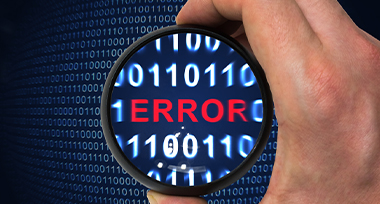What is Data Encryption and How is it Used in Payment Systems?
Data security is an increasingly important issue in the digital age. Data encryption methods used to protect sensitive information, especially in financial transactions, are of great importance for the security of payment systems. Encryption techniques and cryptography developed in the face of increasing cyber threats are among the indispensable elements of the digital world. Although protection methods are improving, it is very important to always protect data as cyber attacks continue to diversify. Especially when it comes to payment systems, the importance of data encryption is much greater.
Data encryption algorithms play an important role in the data protection process, while innovations in the field of cyber security contribute to the continuous development of these technologies. Therefore, digital security is not only important for large organizations but also for individuals. So, how do these data protection methods work and how are they applied in payment systems? Let’s take a look at how security is ensured in the digital world.

Advantages of Data Encryption
Data encryption is one of the most effective methods for protecting data in the digital world. Especially in financial transactions and the management of sensitive information, encryption techniques offer many important advantages as well as increasing data security. The advantages of data encryption include ensuring data confidentiality, preventing unauthorized access, protecting data integrity, and providing an effective defense against cyber attacks. The most important advantages are as follows:
- Encryption methods used to increase data security prevent unauthorized access to information.
- Encrypted data, which offers the advantage of ensuring confidentiality, is only available to be read by those who have the right key.
- Encryption is also crucial for preventing unauthorized access. Only authorized persons can access data, preventing data leaks and unauthorized access. It is a vital measure, especially for the security of corporate information.
- Data integrity is one of the key advantages of encryption. Encryption enables data to be transmitted/stored intact, making it possible to make decisions based on accurate and reliable information.
- Secure data transmission allows data to be transmitted securely, especially for transactions over the internet.
- Encryption provides protection against cyber-attacks, making it difficult for malicious actors to intercept and manipulate data. This maximizes security in the digital world.
- Data protection measures with encryption technologies are an indispensable tool in today’s digital environment. Because with all these advantages, it helps companies or individuals to take full advantage of digital technologies by maximizing the security of all data.
- Data encryption security contributes greatly to preventing major financial losses, especially in payment systems, and protecting the brand image of companies.
Disadvantages of Data Encryption
Data encryption technology, a powerful tool for security, has some disadvantages as well as advantages. For example, the encryption process often creates performance issues. Data encryption and decryption challenges consume system resources. In addition, encryption costs can be prohibitively expensive. Implementing strong encryption algorithms may require costly solutions and professional support. Therefore, the operational costs of the encryption process should not be forgotten.
Complexity can be a significant disadvantage when it comes to encryption technologies . For example, key management challenges come to the fore in the encryption process. Secure storage/management of keys can result in data access issues or data loss risks. Compatibility issues can prevent encryption methods from working smoothly. Compatibility of data encryption methods between different systems and platforms can be problematic in some cases. However, the disadvantages of data encryption can be completely eliminated with professional use.
The Use of Data Encryption in Payment Systems
When it comes to the security of digital payment processes, the first thing that comes to mind is data encryption technologies in payment systems. Because card information security and online payment security are protected by encryption techniques. POS devices are equipped with encryption methods to ensure secure transmission of data during payment. Payment gateway security is also of utmost importance.
PCI DSS compliance is the other key component of data encryption in payment systems. This standard mandates the secure storage and processing of credit card information. Thus, digital wallets and mobile payment security are also secured through encryption techniques. Cryptographic protocols, which offer a secure transaction environment, especially in online payment solutions such as Virtual Pos, basically increase the security of payment processes by ensuring that data can only be read by authorized recipients.
Modern Encryption Techniques and Payment Systems
Modern encryption techniques, which play an indispensable role in securing payment systems, consist of methods such as AES, SSL/TLS, symmetric and asymmetric. For example, one of the most widely used symmetric encryption methods is AES (Advanced Encryption Standard) . AES stands out for its balance of speed and security. Asymmetric encryption involves techniques that secure data using two different keys. The RSA algorithm is one of the best-known examples in this field.
Encryption techniques protect data in payment systems, while protocols such as SSL/TLS enable secure data transmission over the internet. Data encryption standards ensure that encryption methods are applied with integrity, and new technologies such as blockchain encryption offer extra layers of security in digital payments. All these encryption processes are carried out through specialized encryption software, contributing to the highest level of security in payment systems.
If you prefer payment systems equipped with high security measures, you can benefit from PayTR’s digital payment solutions and improve your online payment processes. you can get the highest level of protection. Thanks to PayTR, which is supported by strong encryption techniques and advanced security protocols, you can ensure the security of both your business and your customers.
Popüler Ürünler

Virtual POS
Receive your payments safely, easily and quickly through your e-commerce site.

Physical POS
Take face-to-face single or installment payments from all cards with a single device and contract.

Payment Links
Create easy payment links to receive remote payments even if you do not have a website.
Benzer Blog İçerikleri İlginizi Çekebilir

Virtual POS Error Codes and Solutions
Virtual POS error codes prevent e-commerce activities from continuing uninterruptedly. It also creates a loss of reputat

10 Profitable Business Ideas for Those Who Want to Start Their Own Business
No matter how difficult economic conditions become, many people dream of starting their own business. Young, women, midd

How to Sell Products Abroad?
Selling products abroad is advantageous both in terms of reaching a wider audience and earning income in foreign currenc


